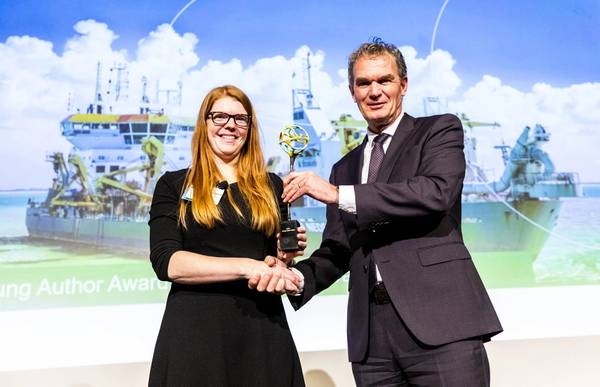
The International Association of Dredging Companies (IADC) bestowed the Young Author Award to Liesbeth De Keukelaere, R&D Professional at VITO in Belgium. IADC’s Young Author Award is given annually to “stimulate the promotion of new ideas and encourage younger men and women in the dredging industry”. The award is granted at industry-leading conferences, with a winning young author selected from the proceedings of the CEDA Dredging Days 2019, held on November 7-8, 2019, in Rotterdam, The Netherlands.
Ms De Keukelaere was selected as the Young Author Award winner for the co-authoring of the research paper “Mapping water quality with drones – test case in Texel”.
A pilot test case at the Prins Hendrikzanddijk project in Texel, the Netherlands, was organized end October 2018 to demonstrate drone technology for water quality monitoring. Jan De Nul was working on creating a new dune area seaward of the existing dike. This dune takes over the coastal protection function of the existing dike and combines it with nature development, public services and recreational appeal. For the demo an octocopter drone platform was used with a multispectral camera underneath. During drone flights, a base station shows real-time information on the location of the drone, a projected true color image captured by the camera and the position of neighboring boats through Automatic Identification System (AIS). Thanks to this information it is easy to adapt flight missions according to the situation. The drone data were processed with dedicated software into turbidity maps. This independently from in-situ observations. Water samples, collected simultaneously with drone flights were used for the validation of the derived products.




